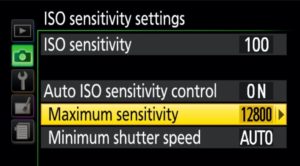Since being involved with your narcissist, whether you are still “together,” in the throes of (yet another) discard phase, or have finally found the courage to move on with your life and begin the arduous journey of healing, how many times have you found yourself apologizing for something you either said or did to someone who wasn’t truly deserving of your ire as a result of an emotionally-charged knee-jerk reaction?
the courage to move on with your life and begin the arduous journey of healing, how many times have you found yourself apologizing for something you either said or did to someone who wasn’t truly deserving of your ire as a result of an emotionally-charged knee-jerk reaction?
What you’re experiencing are the aftershocks of having been involved with a narcissist. In point of fact, you are suffering from PTSD as a result of narcissistic abuse. The trauma you are feeling is very real and anyone who attempts to subvert or dilute the validity and intensity of these painful emotions simply does not understand the multiple levels of hell you were forced to endure at the hands of your narcissist.
Think back, how many times have you unceremoniously snapped at a close friend, your child(ren), parent(s), or even the checkout girl at your local grocery over the course of the last month or two? Or perhaps you feel you’ve finally met someone decent with whom you could possibly share something worth pursuing. But then they did or said something that immediately triggered a negative, possibly even unwarranted, reaction that shut them down and shut them out. Congratulations. Your survival instincts – those things we suppressed whilst with our narcissist in a futile effort to keep the peace, those things which could have saved us so much heartache and grief if we would have just heeded their multitude of warnings – have finally kicked in and are very much alive and well. Only they are now set on MAXIMUM-SENSITIVITY and the slightest incident elicits a vehement reaction of unprecedented magnitude.
heartache and grief if we would have just heeded their multitude of warnings – have finally kicked in and are very much alive and well. Only they are now set on MAXIMUM-SENSITIVITY and the slightest incident elicits a vehement reaction of unprecedented magnitude.
If we’re to have any true form and hope of healing, we are going to have to learn to allow ourselves the luxury of feeling while simultaneously objectively distancing ourselves from what we are feeling, allowing ourselves to ride out these emotional tidal forces thusly washing up on the shores of healing. It’s not only necessary that we do so, it’s critical if our truly important and worthy relationships are to survive the aftermath of recovering from narcissistic abuse. So how do we heal?
- Write down what you’re feeling. I’ve been saying this for months across many posts. Write out your feelings, if possible, instead of reacting to them. It’s much easier to do this if what has provoked your reaction is a text or e-Mail versus a face-to-face encounter (see Step 6.). After writing out your feelings, read what you have written as though you’re sitting and listening to someone else share their painful emotions and experiences with you. If you have a diary, this can be particularly useful in that you can keep track of your emotions and your reactions to external stimuli on a daily basis. I keep a digital diary – really just a gMail account that I use to send myself e-Mails from my personal account – wherein I title each entry with the day of the week and date (e.g. Saturday, January 18, 2020), so the subject of the e-Mail appears as a dated diary entry in my Inbox. This makes keeping track of entries a cinch. Here’s an excerpt:

- Explore what you are feeling. Part of the experience of writing out your emotions also entails genuinely and honestly embracing and exploring what and why you are feeling what you’re feeling. “Why did what this person say/write impact me so deeply?” “Why did I react so defensively?” This takes a great deal of introspection and courage as you are truly looking at both the core of your emotional center as well as what has triggered your reaction. As you delve deeper, what you will generally find is that at the core of great anger, lies great fear.
- Time-Outs aren’t just for kids. I have a rule by which I attempt to abide when someone has “pushed my buttons”: 24 hours before replying. I’ll admit, I have broken this little rule more than once and I have found myself eating crow almost just as many times, as a result. If you find your reactions are becoming increasingly heated, perhaps even furiously passionate, go somewhere where you can vent and release your anger.
 There is absolutely nothing wrong with being Vesuvian, in fact, it can be quite cathartic; however, don’t destroy the cities of Pompeii and Herculaneum when some alone time, privately venting, could have saved all the citizens from complete and total annihilation. In other words, don’t allow your temper or your tongue to destroy innocent people because of someone else’s actions or words.
There is absolutely nothing wrong with being Vesuvian, in fact, it can be quite cathartic; however, don’t destroy the cities of Pompeii and Herculaneum when some alone time, privately venting, could have saved all the citizens from complete and total annihilation. In other words, don’t allow your temper or your tongue to destroy innocent people because of someone else’s actions or words. - Stop perpetuating the abuse. How many times have you reacted negatively, only to turn around, when you’ve calmed down, and berated yourself for “going overboard?” What you must realize, when you beat yourself up for reacting so strongly, you are, in effect, perpetuating the abuse that your narcissist started. As with the narcissist, you are saying that your feelings aren’t valid, that you shouldn’t have (re)acted the way you did, and that you were wrong. While we probably did overreact in the moment, at the time, we felt we had every right to feel what we felt, otherwise, we wouldn’t have lashed out the way that we did. Be honest with yourself over why you (re)acted the way that you did. But also be equally honest with whoever was the recipient of your words or actions and sincerely apologize to them. If they weren’t genuinely deserving of your ire, explain what the catalyst was and share your sincere remorse. “When you said/did what you did, it immediately reminded me of when s/he did the same thing to me. I felt threatened and trapped. Please accept my apology.”
- Practice relaxation techniques. When you find yourself in a volatile situation, if possible, try to take a few deep and cleansing breaths to get your bearings and to ground yourself. If you do not have the luxury of
 taking a few breaths, walk away, especially when you find yourself in a confrontational situation. As part of this process, a mental exercise you can do is to repeatedly visualize yourself in a heated situation and envision your reaction down to the nth degree. Doing this, repeatedly, “programs” your mind to react in a certain way so that, when the time comes, you will hopefully have the desired positive, manageable reaction manifest as a reflex instead of repeating your past patterns of behavior or having to make a conscious effort or thought.
taking a few breaths, walk away, especially when you find yourself in a confrontational situation. As part of this process, a mental exercise you can do is to repeatedly visualize yourself in a heated situation and envision your reaction down to the nth degree. Doing this, repeatedly, “programs” your mind to react in a certain way so that, when the time comes, you will hopefully have the desired positive, manageable reaction manifest as a reflex instead of repeating your past patterns of behavior or having to make a conscious effort or thought. - Count from 1 to zen. When in a situation where you can foresee tensions and tempers rising, try to remind yourself that by reacting, you are in fact giving this person power over you. By staying calm, you take away their power to control you. If possible, count from 1 to 10 and breathe slowly. If the person with whom you are interfacing begins demanding a response, attempt to remove yourself from the situation and tell them you will be right back – you owe them no more explanation than that. If you cannot remove yourself, simply tell them, “Please give me a moment to reflect on what you’ve said.” If this other person is your narcissist, you may find yourself suddenly feeling claustrophobic, perhaps even trapped! Don’t panic – this is your perception of the situation, not reality. Your narcissist has trained you to feel this way to further force your reliance and dependence on them. Above all: Stay calm. Don’t give them power over you!
If you find yourself reacting vehemently to smaller, less consequential matters, ask yourself why. Many times, fear masquerades as anger. How is your stress level? Do you find that you are on edge almost constantly? If so, you’re teetering on the precipice and you will find that (m)any small thing(s) can be the catalyst to give you that gentle nudge, pushing you over the edge, evoking an unsavory reaction. Try writing out what you feel has you in such a stressed state. Is it finances? Write out your monetary obligations and come up with a game plan to lessen their impact. It might take months or even years, but you’ll get there. Is it repeated exposure to your narcissist? Figure out a way to see him/her less frequently – although this is extremely difficult if you are co-parenting, there are ways to work out a schedule that will lessen their presence and your exposure to them.
Whatever happens, try to remember, no one is perfect. While that may sound cliché, it is nonetheless true. You are human. You are going to say or do a number of things in your life for which you will harbor regret – that’s just part of life and part of living – but it’s not an excuse, either. Be accountable for your actions and words, be honest with what roused them, and be sincerely contrite when you’ve wronged someone, especially yourself. If you delve honestly and earnestly, you will get to the core of the issue and generally find that it has very little, if any true power over you. Just remember, you’ve got this.


Leave a Reply